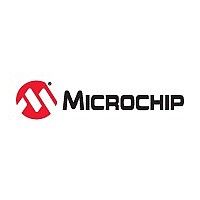PIC16F690-E/P Microchip Technology Inc., PIC16F690-E/P Datasheet - Page 110

PIC16F690-E/P
Manufacturer Part Number
PIC16F690-E/P
Description
20 PIN, 7 KB FLASH, 256 RAM, 18 I/O
Manufacturer
Microchip Technology Inc.
Datasheet
1.PIC16F690-EP.pdf
(294 pages)
Specifications of PIC16F690-E/P
A/d Inputs
12-Channel, 10-Bit
Comparators
2
Cpu Speed
7 MIPS
Eeprom Memory
256 Bytes
Input Output
18
Interface
USART
Memory Type
Flash
Number Of Bits
8
Package Type
20-pin PDIP
Programmable Memory
7K Bytes
Ram Size
256 Bytes
Speed
20 MHz
Timers
2-8-bit, 1-16-bit
Voltage, Range
2-5.5 V
Lead Free Status / Rohs Status
RoHS Compliant part
Electrostatic Device
- Current page: 110 of 294
- Download datasheet (6Mb)
PIC16F631/677/685/687/689/690
9.1
When configuring and using the ADC the following
functions must be considered:
• Port configuration
• Channel selection
• ADC voltage reference selection
• ADC conversion clock source
• Interrupt control
• Results formatting
9.1.1
The ADC can be used to convert both analog and digital
signals. When converting analog signals, the I/O pin
should be configured for analog by setting the associated
TRIS and ANSEL bits. See the corresponding port
section for more information.
9.1.2
The CHS bits of the ADCON0 register determine which
channel is connected to the sample and hold circuit.
When changing channels, a delay is required before
starting the next conversion. Refer to Section 9.2
“ADC Operation” for more information.
DS41262C-page 108
Note:
ADC Configuration
PORT CONFIGURATION
Analog voltages on any pin that is defined
as a digital input may cause the input
buffer to conduct excess current.
CHANNEL SELECTION
Preliminary
9.1.3
The VCFG bit of the ADCON0 register provides control
of the positive voltage reference. The positive voltage
reference can be either V
source. The negative voltage reference is always
connected to the ground reference.
9.1.4
The source of the conversion clock is software
selectable via the ADCS bits of the ADCON1 register.
There are seven possible clock options:
• F
• F
• F
• F
• F
• F
• F
The time to complete one bit conversion is defined as
T
as shown in Figure 9-2.
For correct conversion, the appropriate T
must be met. See A/D conversion requirements in
Section 17.0 “Electrical Specifications” for more
information. Table 9-1 gives examples of appropriate
ADC clock selections.
AD
Note:
OSC
OSC
OSC
OSC
OSC
OSC
RC
. One full 10-bit conversion requires 11 T
(dedicated internal oscillator)
/2
/4
/8
/16
/32
/64
ADC V
Unless using the F
system clock frequency will change the
ADC
adversely affect the ADC result.
CONVERSION CLOCK
clock
OLTAGE REFERENCE
© 2006 Microchip Technology Inc.
DD
frequency,
RC
or an external voltage
, any changes in the
AD
which
specification
AD
periods
may
Related parts for PIC16F690-E/P
Image
Part Number
Description
Manufacturer
Datasheet
Request
R

Part Number:
Description:
3.5KB Flash, 128B RAM, 18 I/O, CLC, CWG, DDS, 10-bit ADC 20 QFN 4x4mm TUBE
Manufacturer:
Microchip Technology
Datasheet:

Part Number:
Description:
3.5KB Flash, 128B RAM, 18 I/O, CLC, CWG, DDS, 10-bit ADC 20 PDIP .300in TUBE
Manufacturer:
Microchip Technology
Datasheet:

Part Number:
Description:
3.5KB Flash, 128B RAM, 18 I/O, CLC, CWG, DDS, 10-bit ADC 20 SOIC .300in TUBE
Manufacturer:
Microchip Technology
Datasheet:

Part Number:
Description:
3.5KB Flash, 128B RAM, 18 I/O, CLC, CWG, DDS, 10-bit ADC 20 SSOP .209in TUBE
Manufacturer:
Microchip Technology
Datasheet:

Part Number:
Description:
3.5KB Flash, 128B RAM, 18 I/O, CLC, CWG, DDS, 10-bit ADC 20 QFN 4x4mm TUBE
Manufacturer:
Microchip Technology
Datasheet:

Part Number:
Description:
3.5KB Flash, 128B RAM, 18 I/O, CLC, CWG, DDS, 10-bit ADC 20 PDIP .300in TUBE
Manufacturer:
Microchip Technology
Datasheet:

Part Number:
Description:
3.5KB Flash, 128B RAM, 18 I/O, CLC, CWG, DDS, 10-bit ADC 20 SOIC .300in TUBE
Manufacturer:
Microchip Technology
Datasheet:

Part Number:
Description:
3.5KB Flash, 128B RAM, 18 I/O, CLC, CWG, DDS, 10-bit ADC 20 SSOP .209in TUBE
Manufacturer:
Microchip Technology
Datasheet:

Part Number:
Description:
3.5KB Flash, 128B RAM, 18 I/O, CLC, CWG, DDS, 10-bit ADC 20 QFN 4x4mm T/R
Manufacturer:
Microchip Technology
Datasheet:

Part Number:
Description:
3.5KB Flash, 128B RAM, 18 I/O, CLC, CWG, DDS, 10-bit ADC 20 SOIC .300in T/R
Manufacturer:
Microchip Technology
Datasheet:

Part Number:
Description:
3.5KB Flash, 128B RAM, 18 I/O, CLC, CWG, DDS, 10-bit ADC 20 SSOP .209in T/R
Manufacturer:
Microchip Technology
Datasheet:

Part Number:
Description:
3.5KB Flash, 128B RAM, 18 I/O, CLC, CWG, DDS, 10-bit ADC 20 QFN 4x4mm TUBE
Manufacturer:
Microchip Technology
Datasheet:

Part Number:
Description:
3.5KB Flash, 128B RAM, 18 I/O, CLC, CWG, DDS, 10-bit ADC 20 PDIP .300in TUBE
Manufacturer:
Microchip Technology
Datasheet:

Part Number:
Description:
3.5KB Flash, 128B RAM, 18 I/O, CLC, CWG, DDS, 10-bit ADC 20 SOIC .300in TUBE
Manufacturer:
Microchip Technology
Datasheet:

Part Number:
Description:
3.5KB Flash, 128B RAM, 18 I/O, CLC, CWG, DDS, 10-bit ADC 20 SSOP .209in TUBE
Manufacturer:
Microchip Technology
Datasheet:










